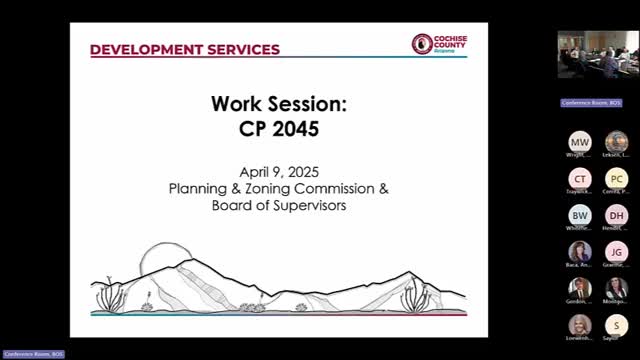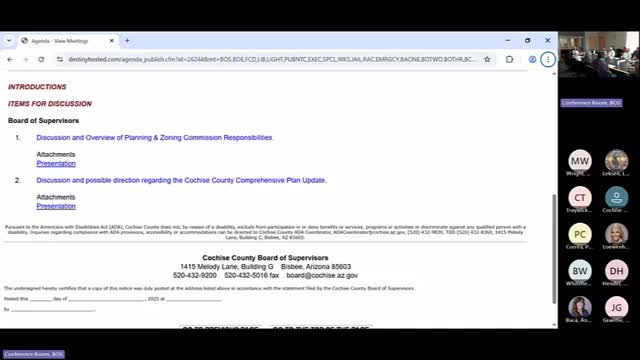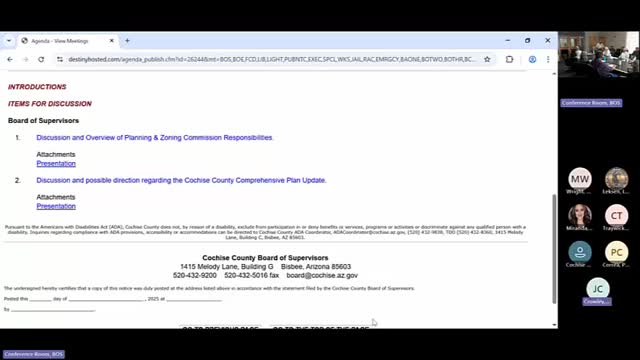Article not found
This article is no longer available. But don't worry—we've gathered other articles that discuss the same topic.

Development Services outlines comprehensive plan update; supervisors push for June work session on growth and infrastructure

Supervisors and planning staff flag conflicts in subdivided ‘Pierce Sun Sites’ area; special overlay zone proposed

